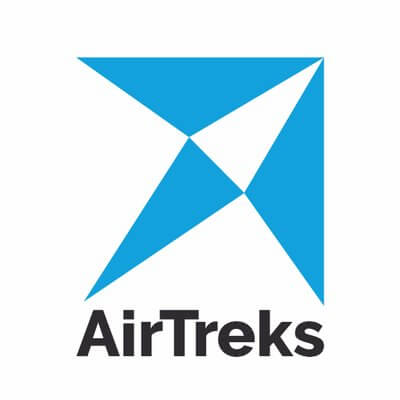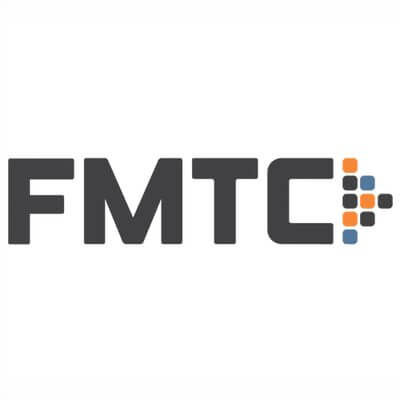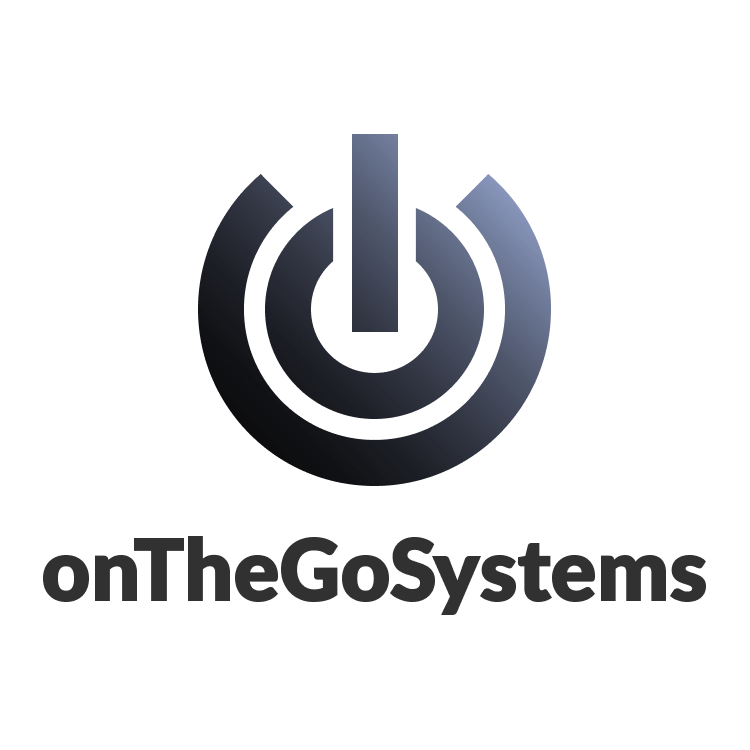What were the main reasons to integrate remote work into your workforce?
We didn’t integrate remote work – we intended to be remote from the start!
I’ve mostly explained the rationale in answering the previous question: I wanted to build a higher scale team, while remaining cost competitive, and bringing in the best talent within a niche skillset (which was distributed).
I’d add that:
- The timing was right in 2011. Tools for remote collaboration were “good enough”.
- We had good role models: 37signals (now Basecamp), and closer to home for our business, Automattic.
- When I started the company, I didn’t know where *I* wanted to live in a year or three years, and didn’t want my own freedom to live and work where I preferred at different times to be constrained by my company. I imagined other prospective employees would feel the same.
Pragmatism. We were looking to build a customer-focused company. People all over the world use 1Password, so hiring globally helps the people who build and support 1Password get closer to our customers, whether it’s by helping them in their native language or learning from how they use the product differently.
We have always had a distributed workforce since inception. It was deliberate.
Aha! has never had an office of any size. Employees around the world continue to work from home or other locations of their choosing. While that has helped us grow by reducing our overhead, remote work also gives us access to a larger, deeper pool of talent. We aspire to make employees’ lives better, and inviting them to work with Aha! without asking them to relocate is powerful proof of our sincerity. Remote work means we do not disqualify skilled, values-driven people based on geography.
We are intent on finding people whose skills and passion for service would make them a great fit within our Relationship Care culture. We’re excited to present home-based opportunities for people whose location or personal situation may not allow them to apply for one of our jobs at a service center.
To allow for continued growth as a company we integrated remote work. The major benefits have been the redundancy of our operating system by not having all employees working in the same location and the ability to continue to hire to stay ahead of our growth as a company. Not to mention the benefits to our employees by allowing them to work from home.
We integrated remote work to best support our clients that are located throughout the United States and globally to provide a flexible environment for our employees. We look for individuals who are self-driven, motivated, and entrepreneurial so a flexible and remote environment allows our team members to thrive.
Getting the best talent wherever they landed. Belief that people work their best when working autonomously. We are big believers in Daniel Pink’s work that champions autonomy, mastery and purpose. We believe the remote environment reinforces all of these principles.
The first Automatticians were already collaborating remotely together on the WordPress open source project, so when the company was formed it was a natural fit to not have a base and to grow it in a distributed way.
We saw a gap in the marketplace and knew people and organizations would benefit from the remote workforce. With a remote worker, you are not bound by location to find great talent. It also allows the talent to work with high employee satisfaction and flexibility.
We wanted to give the opportunity to as many talented professionals as possible to join the industry and to find rewarding work no matter where they are located.
From our inception, Bright!Tax has always been an online tax preparation services provider, so remote work has always been a natural model for us.
Remote work was important to our CEO Joel Gascoigne from the start as he himself is someone who greatly enjoys traveling. He wanted the whole team to have the freedom to live and work from the place in the world they felt the happiest and most productive, and have the courage to discover where that might be. In the early days of remote work, it was quickly discovered that having teammates spread out around the world was an excellent customer service benefit. Customers could be responded to at all hours of the day, and there was often an engineer online if ever there was any trouble that needed immediate fixing.
As an Open source company we are already supported by the Ubuntu community that has a global reach. It made sense for us to have the same approach to permanent employees and thus potentially being able to engage the Ubuntu community in every country with the ability to offer permanent employment to the right people.
A remote work model is cost-effective and enables us to hire a wide variety of talented people from around the world and not be restricted by geography.
Remote work has been at the core of the company’s DNA since its inception. From the start, the company CEO saw the value in hiring outside of any geographical limits. By widening the scope of the hiring process, the company became a stronger organization from its beginning.
The data systems our jobs use are all technological and internet-based, so it behooved us to get a leg up on developing efficient and strategic remote work policies at the first sign of remote jobs coming through. Our industry is constantly developing new ways to make more work do-able from home.
We started out remotely for several reasons: we wanted Crossover team members to come from the top of the talent pool and we could only manage this by opening up that pool on a global scale. It also made the most sense financially. Our product isn’t something that needs to be physically handled or based anywhere, and outside of meetings and other forms of communication–all of which can be done easily through Skype and email– it made the most sense for everyone to work where they were already based.
DataStax provides products that are “wrapped around” open source software. The early employees were engineers who came from the open source world where there is no HQ and everyone already collaborated from around the world. We felt it was important to keep that culture as the company grew. Additionally, as the company matured and hired a worldwide sales team we found that much of sales was also remote.
Dell builds technology that enables people to do their best work at any time, from anywhere in the world. So it only makes sense that we were early adopters of flexible work arrangements for our own team members. Recognizing that today’s global work environment promotes creativity and collaboration outside of traditional office hours and locations, in 2009 we created our work flexibility program called Connected Workplace.
We were remote from day one. I used to commute for 3 hours a day to my last job, working solo from the office with merely a couple of hours overlap with my client’s time zone. The conservative old-school model was apparently doing it wrong, and it was my duty to ensure that innovative models supporting creativity and energy over presence are the pillars of our team.
- Access to the entire world’s pool of talent, rather than just limiting ourselves to professionals in one specific geographical location.
- Lower costs– there are less overhead costs and salaries on a global level are much more reasonable than those in tech hubs like Silicon Valley. This means we can invest more in providing amazing benefits to our team and giving back to the causes that we feel strongly about.
- Happier employees– our team members have the flexibility to work on the schedule that they choose, in the location they choose.
Our company has always been 100% remote, and a big part of that has been because it all started with one person! We’re completely bootstrapped, so the company evolved from what started as a social media coaching business to info products to, eventually, the development of Edgar. As the company grew, so did its needs, and we’ve been able to grow one person at a time by always finding the best candidate for any given job, wherever they may be.
We say Envato was ‘born global’, which is as much about our team as it is about our community. From (almost!) the start, we have had people work for Envato who are based all over the world. The Co-founders, Collis and Cyan Ta’eed, wanted to travel and work so when they set up the business they had that in mind. In the beginning they even ran Envato remotely while they travelled the world for 18 months. Remote work has always been a part of Envato. It allows us to encourage amazing people all around Australia and the world to work for us and it gives people who have responsibilities or other passions the chance to fit them into their daily lives.
As a digital company, at the outset we were natives hiring natives to use technology like this. It allowed us to scale up at a reasonable pace with no traditional overhead. Now, we’re able to grow our talent base and in the cities that make the most amount of sense for where our existing and new partners are.
We need to attract — but cannot afford to pay top dollar for — the best and brightest professionals. Offering remote work allows us to attract the top talent because we can now give them the flexibility they strongly desire. At the same time, a remote work model allows us to not have to invest in expensive office space, keeping our costs in check.
Our CEO & Founder, Sara Sutton, founded FlexJobs in 2007 while she was pregnant with her first son, in response to her frustrating search for flexible work that would fit with her career and her family.. Having also co-founded an entry-level employment service in 1995, she has long been passionate about helping people find jobs that make their lives better, and she was thrilled to apply her own experience as a working mom to help others who want or need work flexibility. As a result, it was a natural fit to build a company that operates with a remote workforce.
Formstack was founded in 2006, so we existed as a fully local company for seven years before making the decision to transition to a remote workforce. In 2011, we decided to hire our first remote employee, a developer based out of Poland. Not too long after, my wife was offered a job in Oklahoma that led me to try my hand at remote leadership. Our official decision to go remote was formally made after several organic discussions about other team members moving out of state. As previously mentioned, several of our former Indy employees now live in other states, and some of our early decisions with remote working made that possible. We’ve had several trial-and-error experiences with technology, communication, in-person meeting best practices, and other remote working aspects, but we’re strengthening our remote team every day.
In the early days of the company, there was no physical office. The founders and very first employees in San Francisco all communicated using web-based chat services instead from wherever they were working, whether that was from home or a coffee shop. Many of our early hires were people who lived outside of San Francisco too, and this continued as the company grew. Remote work being the default has always made a lot of sense for GitHub, because it meant we could ensure our product worked for teams regardless of where people were located.
Goodway became a 98 percent virtual company in 2006, once we transitioned from being a traditional print marketing company to an entirely digital firm. The majority of the ad tech industry is located in New York. We decided that opening an office headquarters, competing in red waters and paying 30 – 50 percent more for talent wasn’t a good recipe for success. To date, we’ve hired employees in 36 different states. Our employee-initiated turnover is 80 percent less than the industry average, and our client retention rate is 95 percent. The remote business model is working quite well for us.
With the explosion of technological advances, we don’t believe that businesses today need a physical location to operate successfully. So we don’t view our structure as “integrating remote work”, but rather ensuring we create a business structure that focuses on supporting the initiatives that most benefit our clients. It is our responsibility and desire to have the best talent from around the globe, to have team members who understand the expat life from personal experience and to focus our business spent on the areas that generate the most value for the client. We truly don’t believe that an office environment would allow us to do that.
It stems from the founder’s vision of building a company where people are autonomous and take ownership of their work. The acquisition of talent should not be obstructed by proximity. By being remote, we can build a team without borders, and in turn, improve the quality and diversity of our team.
We are nontraditional in just about every way. It was kind of a no-brainer. We expect a tremendous amount of productivity but if you are the kind of person that needs to clock in and out of an office by mandate in order to have someone monitor your productivity… you’re not our kind of person.
Remote work is part of our core beliefs and the foundation of what we built our company upon. We value the freedom and flexibility that comes with remote work, as well as the ability to work with talented professionals regardless of geographical boundaries.
It might be a surprise to some, but ICUC has never had a physical office! Our company was built with a remote work environment from day one.
Because, we as the founders already live in different places and have the possibility to find the best WordPress developer all over Germany or worldwide. Location shouldn’t be a boundary to work at Inpsyde.
Talent pool and work/life balance. We value family and quality work. We know if we can keep our team happy and allow them to live their lives, they’ll want to come to work!
As a technology company it just made sense from the very beginning. We also found that hiring was much easier with the whole country as a possible “office” where we could attract high-quality people.
It is a lifestyle I am passionate about, and my wife and I have lived this lifestyle for about two years now. Just when I was building Jungle Scout was also when I decided to make this lifestyle decision for myself, and because of that it felt natural to build a remote team.
I built the business out of a desire to support my family while maintaining the flexibility to live wherever I wanted and live a balanced life, so it was only natural that the business be created to support remote work.
We live the #LiquidLife. We exemplify the product we want to create, working from the inventory on our platform.
The company started as an all telecommuting venture, partly as an experiment to see if an office was really necessary and to avoid a commute for people. We realized it was a great way to source excellent talent from around the world. Once we got rolling, we never looked back and don’t see any limits to it going forward.
We didn’t so much “integrate” it as we built on it as our foundation. We did so because our two founders were in different cities and already working together well without being in the same place. As we’ve grown, being fully distributed has been an advantage not by simply broadening our talent pool for finding the awesome people that make up our team, but also by creating a passion for and intentional focus on communication within our company culture and way of doing things that has served us well as a business.
Modern Tribe has never had an office until just recently, and those are simply a couple people who decided they wanted someone to arm wrestle with when they weren’t working with the team.
We began as a distributed collective of freelancers, collaborating on projects which were larger than any individual could handle on their own. While the company has evolved into different industries and now has employees as well as contractors, we remain predominantly dispersed. The reasons for the approach were varied. I cut my teeth on the dot com bust in 2001 and after losing five jobs in two years, I became very attuned to any approach to business that managed risk and cost. While I would not claim that distributed is cheaper as our company got bigger, it was a very nimble way to do business. Access to talent was a major incentive. I live in a small surf town. Close enough to Silicon Valley to make a day trip of it, but as a distributed company, I have access to the entire world. The natural flexibility of the lifestyle I was looking for as an owner is a very nice fit for remote work.
Remote work is not only highly efficient, effective and good for the environment- it is great for mothers. The flexibility it allows makes taking care of family responsibilities and work responsibilities much simpler.
We started this way and have only increased remote work over the past decade. Many skillsets, like graphic designer, work exceptionally well from home. Remote engineers allow us to accomplish systems work outside of U.S. hours, increasing our productivity. And much more! CEO lives in central Oregon but can still maintain constant communication with the team.
We firmly believe that one’s life is more important than their job so why not focus on things like the time with your family, friends, spirituality, etc. as opposed to being in a car commuting or being trapped in an office all day. It’s a human decision for us that happens to have massive business benefits.
Omni was founded by the remote work pioneers in the customer contact industry. Our leadership team has a combined 120 years of experience in work-at-home outsourcing and consulting. We know remote work empowers a community of people who are empowered and connected in their mindsets, interests, and goals, with a sense of fellowship and support in their digital community.
Actually, we didn’t integrate remote work. OnTheGoSystems was born as a remote company. Our first members were from Israel (our founder Amir Helzer), Australia, Romania, Serbia, Argentina, and India.
It was happenstance as we developed a solid team and no home office. Now we can’t imagine having a home office.
My company started out as a distributed team, doing remote work, because I enjoyed the freedom that remote work allowed me in my previous job.
At first, it was because we were small and did not want to pay the overhead of office space and we utilized contractors for much of the work. Today, we still do not want the overhead of a dedicated office space, but do utilize various coworking facilities as meet-up points for our team members that may be clustered in the same city. We really cannot envision not being fully remote at this point. It enables us to recruit talent all over the world as needed.
Working remotely offers our employees many benefits. First and foremost, different people prefer different environments to reach their peak focus and their peak creativity. Having a distributed team allows us to “swarm” on problems we encounter as a company. It keeps our team members happy, because they can work when and where they want.
Neither my partner nor I wanted to schlep to an office every morning. We love the freedom that remote work brings and we assembled a team over the years that shares those values. Distributed was always the default, so we’ve never really had to make a “choice” per se.
For me, working from home has been my default state for many years, even before Referral Rock. In the early days, it was just me working alone on the product in my home office on nights and weekends. As the business grew, I added people to assist me and join my team in the way I was already working. We figured to just keep growing this way as we found no compelling reasons to change.
Initially, going remote was a matter of equally good talent working from countries with lower living costs. I learned that I, as the founder, really enjoyed the freedom of working on a remote team and decided to keep it that way. I wanted to give this freedom to everyone else. While it’s true that we could start an office, I do not think it would be beneficial for the business. We’re remote only, and we intend to keep it that way.
Cultivating a team of talented editors around the world was part of Scribendi’s business model from day one. Knowing that we wanted to provide high-quality services to clients worldwide, we needed a workforce that could handle not only a high volume of work but also around-the-clock deadlines. The best way to do this was to draw from a global talent pool.
We integrated remote work right from the beginning because it was the only way we could create the company that we wanted to create with the team members we wanted. Our founding team was distributed and it was not an option to require people to move in order to be in one physical location together.
[A]’s reasons for working in a distributed team include:
- Access to the best [A]gents wherever they reside or move.
- Ability to hire local [A]gents where our clients live and work.
- Improved diversity of all kinds.
- Improved efficiency and time impact versus commuting and managing physical logistics.
- Reduced physical constraints to growth.
- Improved experience for our [A]gents.
- Providing our clients and partners a strong distributed platform for project collaboration, improving their experience with [A].
Remote work is the number one way we’ve found to give ourselves flexibility, and to stick with our intersectional, feminist ideas that say if we’re going to create a company, we’re going to create a company that can work for anybody—where people from all over the world with different life experiences can contribute, and most of all, feel welcome.
As CEO, I care deeply about creating the best possible work environment for the Skillcrush team that offers them freedom, flexibility, and happiness—and for us, that means remote work. As Simon Sinek (Author of Start with Why) says, “Customers will never love a company until the employees love it first.”
The founders have never worked in an office, so it was a natural thing to do. What strengthens the decision is that people usually love to work from home.
We didn’t integrate remote work. We chose it. It lets us hire great people who can’t move, and ensures we can keep people if they have to move.
From the start we wanted to fuse technology with manufacturing, but the best developers didn’t live in our region. We turned to open source to find our first developers by engaging with the Spree Commerce team. It’s fairly common to see open source teams spread out across the globe so this conditioned us to believe that remote teams are viable.
Additionally, in manufacturing there’s a common belief that putting customer service in the factory allows you to provide the best possible service. The usual thought is having people next to the machines let’s them quickly react to customer demands. We looked at this differently and felt that if customer service was constantly engaging with the factory it meant something was wrong. By letting our customer service team go remote it forced us to fix a lot of flaws in our processes that ultimately made our operation run much better. Long term the improvements we were forced to make so that we could support a remote team have paid dividends.
Early-on we didn’t have much of a choice. When we started the company, Jeff lived in Santa Barbara, while Sieva was living in San Francisco. As we started interviewing and hiring people we noticed that they hated to commute to work, and we could find high quality talent all across the country. Also, this allows us to keep our costs down.
- More Productive
- Work/ Home Balance
- Save on Travel Time & Money
- Comfortable Work Environment
- Give the savings that gets incurred from office space overheads back to employees as bonuses and benefits.
We started as four people working out of our home offices, and as we grew we never saw a reason to change the model. Everything happens in the cloud these days, so why would we go to the hassle of opening a giant office and moving people around the country when we can just spin up best-in-class employees wherever they happen to be? Remote work makes us more flexible to hire, onboard and retain talent.
When we launched our nonprofit 14 years ago, it was more cost effective than any other option.
We integrated remote work for a few reasons. The founders met at a conference in Austin, Texas. However, they live on opposite sides of the globe. I live in Ottawa and my co-founder (and CEO) lives in Australia.
TNTP has always had a central office, but we’ve also always been primarily virtual. From the very beginning, we knew our people were our biggest asset, and we wanted to be able to hire the most talented people we could find – regardless of where they called home. On top of that, from a strictly practical perspective, office space was a big expenditure, which made remote working an attractive option.
Over time, our virtual structure has driven growth. It’s far easier to expand seamlessly to new locations when we don’t need to set up offices. And it provides for a much greater talent pool, as we can recruit applicants from distant cities without asking them to move.
Most important reason is because we became too monocultural. Our users are the World, but our hiring-radius was 10 km. We wanted diversity, different angles and backgrounds. Why hire a consultant to know how things are done in the States when you can hire a person from the States to work full-time and bring the knowledge in the house.
Secondary reason was the competition in the market. As in everywhere, there is a huge deficit of good developers also in Estonia, especially if you narrow it down to specific programming languages or skills.
When we started the company, Jeremy (my co-founder) and I were living in different cities and working on other things. Jeremy was in film school in Los Angeles, and I was working for Google in San Francisco. We didn’t immediately quit either to work on Tortuga, so we started by working remotely. We’ve known each other for years and have a bit of a mind meld, so working remotely was easy for us. As we grew and started to hire, we stayed remote even before it was a trend that everyone was talking about. Now, being remote is a more popular choice with a strong community talking about it.
The local travel agencies were only servicing local clients, mostly walk-ins. My business model was such that we needed to be focused on the Internet and where we could find new leads globally.
- We started that way, as a handful of technologists from Kenya but living in different places we creating a tool to respond to the 2008 political crisis in Kenya and try and understand what was happening on the ground back home.
- As an open source product, our first volunteers were from all over, and they became our first employees.
- As a non-profit gave us access to great talent who are driven by the mission at a price we could afford.
Our students want to learn from American and Canadian teachers, but it’s not possible for them to study overseas. There’s also a limited number of Western teachers in China.
With our model, Chinese kids can get a Western education experience from home. Also, teachers can run their own classroom from their home. It’s a win-win!
We began as a remote work environment right from the start of the company’s inception. Because the company was a small startup operation, for cost purposes it was run out of the Owners’ homes. As employees were hired, it made sense for everyone to work out of their home to encourage work-life balance and do something new and exciting that many companies were not doing at the time.
We’ve had physical offices as two co-founders in the past but when we started hiring we were working from home and it was working well for us. We tried it out with our first part-time remote hires and it worked great. Then we tried it out with one and then two full-time team members. That worked amazingly well. We scaled it from there.
We have always worked remotely, to promote a healthy work/life balance and enable the best of the best to work with us from anywhere.
XWP’s remote agency roots go back more than 15 years, starting with XHTMLized in 2006. It all started with Dave Rosen’s vision for something different: a mission to deconstruct man-made political barriers and empower people no matter where they are born or where they come from. XWP is proud to represent XWPeople from 34 countries and six continents, comprising a rapidly growing global community of over 100 people.












































































![/Simple [A]](https://remote.co/wp-content/uploads/2018/02/Logo_Eggplant.png?w=100)
























